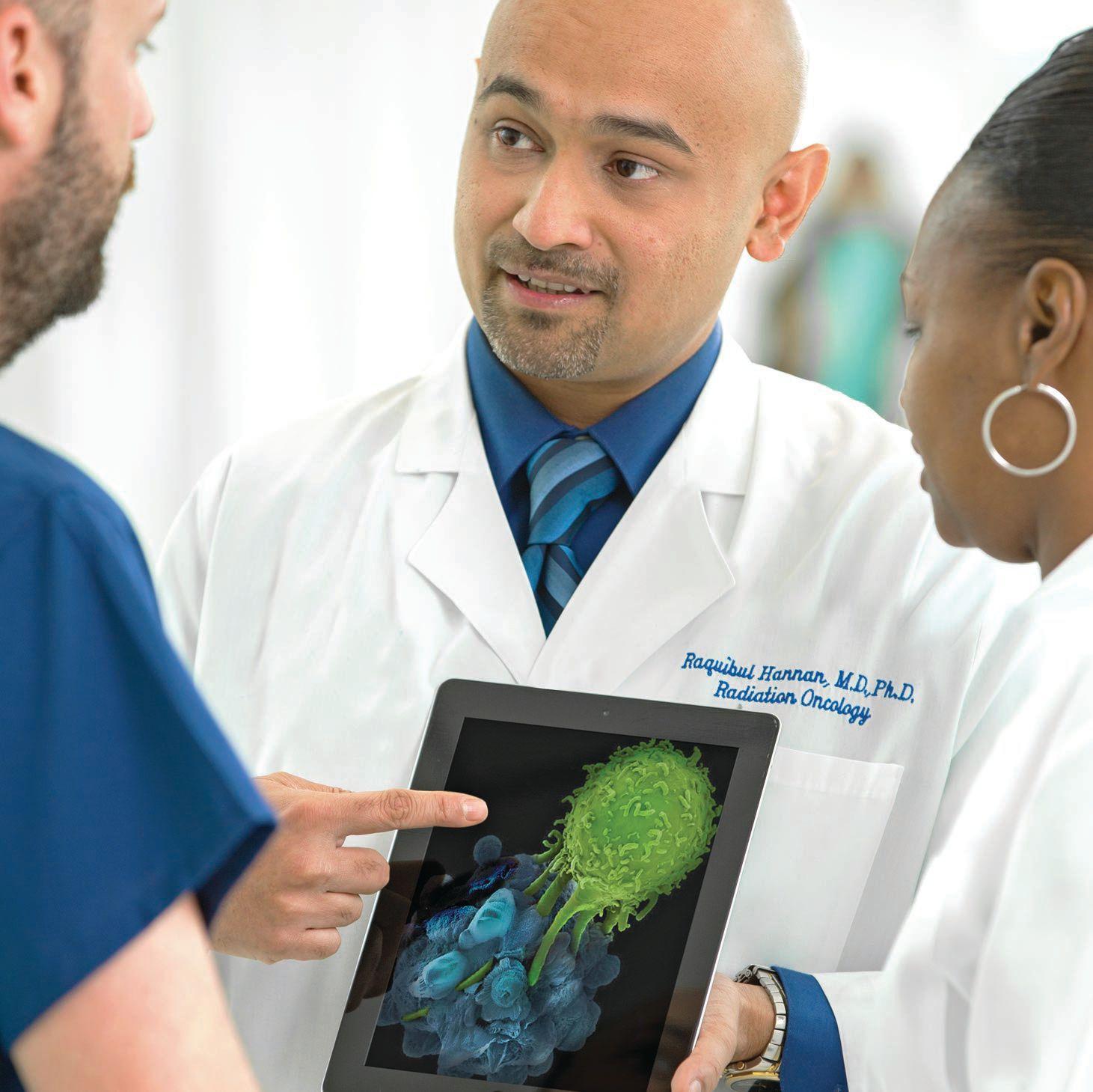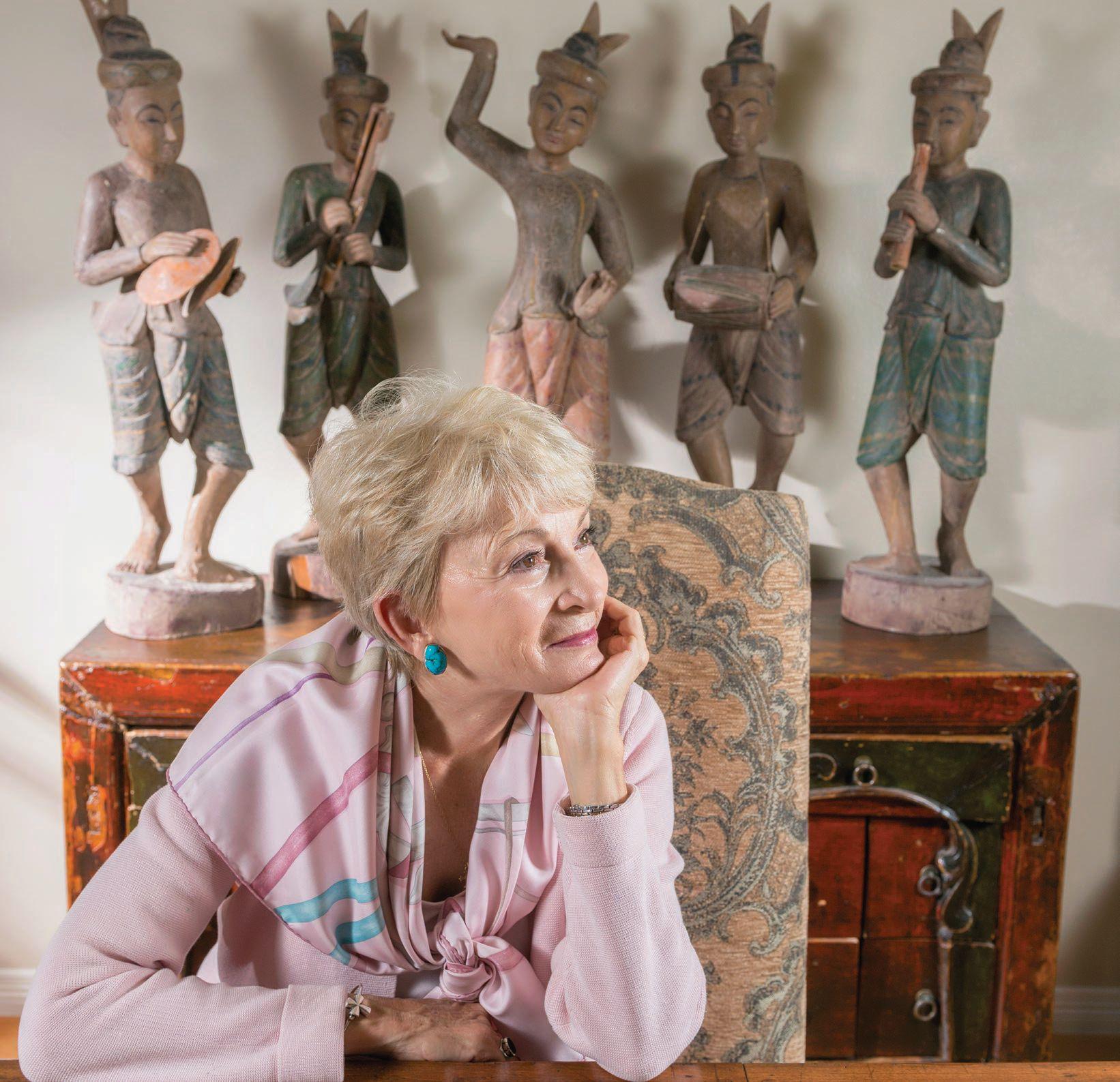
6 minute read
NO BAD SEEDS
Successful growth can happen, even against all odds
The pastor was talking about a familiar parable the other day. I know some of you aren’t big Bible fans, but this particular story is worth some thought regardless of your religious persuasion.
So it seems there was a guy with seeds who decided his planting technique was pretty much to let it fly. He grabbed a handful, whipped it into the wind and let the seeds fall where they may. And then he grabbed another handful of seeds and continued throwing and grabbing until his seed bag was empty.
As with all types of planting, nothing happened at first — a good farmer is patient beyond all good sense. And not surprisingly with this haphazard technique, the seeds fell in places that weren’t necessarily conducive to healthy plant growth.
Some of the seeds fell in random spots such as well-beaten trails, and birds turned many of those seeds into afternoon lunch.
Some of the seeds fell on stony ground; without much dirt, the seeds sprouted but their roots couldn’t grow deeply, and the hot sun fried many that had grown.
Some of the seeds fell among weeds and thorns, so as the seeds grew, the weeds grew even faster, choking out what the sower had planted.
And some of the seeds fell on good soil, and that ideal growing condition yielded great crops and lots of return for the sower.
The question the pastor asked that day was simple: Why the random planting technique, knowing full well that a good portion of the seeds weren’t getting a good start in life? Why not carefully plant each seed in good dirt, ensuring a better chance of growth and success?
His conclusion (or at least my interpretation of his conclusion): The sower’s job is simply to spread the seeds, mindless of where they land, because even though the odds aren’t great for seeds that land on trails, stones or among weeds, the odds of successful growth aren’t zero, either. And, just maybe, the seeds that had to fight their way to growth may wind up heartier and produce more than the seeds that found their way onto easy street.
That was an interpretation I hadn’t considered, but it made sense. Not every seed carefully planted in good soil lives, either, so why should all of the attention go to those seeds already getting a head start in life?
The same can be said of our neighborhood, too. There are good and, shall we say, less good spots in and around us, but we aren’t called upon to decide which of our neighbors succeeds or fails. Our job, as neighbors, is to do our best to encourage success in all quarters, because just as a rising tide lifts all boats, open-minded service to our city gives all of us the best chance to benefit.
It’s frustrating, though. Look at who voted, or mostly who didn’t, in the recent city council elections: More than 9 out of 10 of us decided voting wasn’t worth the trouble. I’ve seen a few explanatory theories advanced, but the best came from a reader who suggested that too many of us have decided that no matter what we do, government and politics will continue to smother us with idiocy, greed and whining.
So why do anything?
Suppose the sower in the parable had taken that approach, giving up before he started and deciding not to plant anything?
If nothing is ever planted, at some point, nothing grows.
That doesn’t seem like a good way to begin celebrating a holiday that encourages individual freedom and celebrates those who sowed seed for us in the past.
6301 Gaston, Suite 820, Dallas 75214; or email rwamre@advocatemag.com.
DISTRIBUTION PH/214.560.4203
ADVERTISING PH/214.560.4203 office administrator: JUDY LILES
214.560.4203 / jliles@advocatemag.com display sales manager: BRIAN BEAVERS
214.560.4201 / bbeavers@advocatemag.com senior advertising consultant: AMY DURANT
214.560.4205 / adurant@advocatemag.com senior advertising consultant: KRISTY GACONNIER
214.264.5887 / kgaconnier@advocatemag.com advertising consultants
SALLY ACKERMAN
214.560.4202 / sackerman@advocatemag.com
NORA JONES
214.292.0962 / njones@advocatemag.com
FRANK McCLENDON
214.560.4215 / fmcclendon@advocatemag.com
GREG KINNEY
214.292.0485 / gkinney@advocatemag.com
EMILY WILLIAMS
469.916.7864 / ewilliams@advocatemag.com
MICHELE PAULDA
214.292.2053 / mpaulda@advocatemag.com classified manager: PRIO BERGER
214.560.4211 / pberger@advocatemag.com director of digital marketing: MICHELLE MEALS
214.635.2120 / mmeals@advocatemag.com
EDITORIAL publisher: CHRISTINA HUGHES BABB
214.560.4204 / chughes@advocatemag.com senior editor: EMILY TOMAN
214.560.4200 / etoman@advocatemag.com editor-at-large: KERI MITCHELL
214.292.0487 / kmitchell@advocatemag.com editors:
RACHEL STONE
214.292.0490 / rstone@advocatemag.com
BRITTANY NUNN
214.635.2122 / bnunn@advocatemag.com senior art director: JYNNETTE NEAL
214.560.4206 / jneal@advocatemag.com assistant art director: EMILY MANGAN
214.292.0493 / emangan@advocatemag.com designers: LARRY OLIVER, KRIS SCOTT, EMILY WILLIAMS contributing editors: SALLY WAMRE contributors: ELIZABETH BARBEE, SAM GILLESPIE, ANGELA
HUNT, GEORGE MASON, KRISTEN MASSAD, BRENT McDOUGAL photo editor: DANNY FULGENCIO
214.635.2121 / danny@advocatemag.com contributing photographers: JAMES COREAS, RASY
RAN, JENNIFER SHERTZER, KATHY TRAN, ANDREW WILLIAMS, SHERYL LANZEL
Radiation oncologist Dr. Raquibul Hannan is offering a new approach to patients whose cancer has spread. By combining his research in immunology with a radiation therapy pioneered here called stereotactic ablative radiotherapy (SABR), he can stimulate supercharged white blood cells to help patients fight off cancer. These “i-SABR” trials are one of many trailblazing options you’ll find at UT Southwestern—where scientific research, advanced technology, and leading-edge treatments come together to bring new hope to cancer patients.
To learn more, contact:
Radiation Oncology at 214-645-8525 | UTSWmedicine.org/radonc.

Find us on Facebook


‘We shouldn’t forget’
Journalist Rena Pederson explores a far-flung country’s fight for democracy
About 15 years ago, neighborhood resident and veteran journalist Rena Pederson wrote a selfhelp book titled “What’s Next?” about how women can change direction in midlife. As she toured and gave talks, she says her readers often asked, “When are you going to change direction?”

“I had been at the [Dallas Morning] News for 30 years,” Pederson says. “My youngest son just got out of college. What I really wanted to do was write books.”
In 2003 Pederson read a newspaper article about Nobel Peace Prize winner Aung San Suu Kyi and her efforts to bring democracy to the corrupt, militant Burmese government. Something about this woman’s story resonated with Pederson, so she used her vacation time at the Morning News to travel to Burma and interview Suu Kyi. The personal project resulted in a book released earlier this year, “The Burma Spring: Aung San Suu Kyi and the New Struggle for the Soul of a Nation.”
Gaining access to Suu Kyi was difficult.
“Not many people did it. It was very hard to get it to the country, no. 1 and no. 2, to get close to her.”
The country did not grant press visas, and anyone working as a journalist was swiftly kicked out. So Pederson slipped in on a tourist visa and embarked on a two-week bicycle tour, getting to know the locals.
“It was a great way to get in the country,” she says. “I was able to bike through remote villages and see what everyone was doing. It turned out to be a wonderful plan.”
On the last day of her trip, she navi- gated some diplomatic channels to get to Suu Kyi — if Pederson was going to be thrown out of the country, it might as well be at the end of her trip, she figured. After more than one attempt, they agreed, and Pederson met the “most impressive person I’ve ever interviewed,” she says.
The fearless leader of Burma’s democratic movement is known for staring down the barrels of soliders’ guns without flinching and has been compared to Mahatma Gandhi and Martin Luther King Jr.
A couple of months after Pederson returned home, the military ambushed Suu Kyi’s convoy, beat 200 of her supporters to death and eventually placed Suu Kyi under strict house arrest for seven years.
“The best I can tell, I was last the person to interview her for seven years,” Pederson says. “She was totally incommunicado. Her radio went silent for sev- en years. That made me feel it was all the more important to do a book about her.”
After enough public outcry, Suu Kyi was released in 2010 but still routinely tracked by the government. She landed a seat in Parliament, but the military retains majority control. Due to economic constraints, the government has opened its borders to globalization and Western tourism.
Pederson returned to the country eight times to finish her book and keep Suu Kyi’s story alive, because her fight for democracy is far from over.
“I can’t tell you what a dramatic feeling it was to stand on the steps of her house, knowing I’m going to be back in Dallas the next day, but she couldn’t leave. I think people do get compassion fatigue. But we shouldn’t forget.” —Emily
Learn More
To learn more and to buy the book, visit renapederson.com.

Toman









